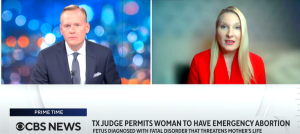December 2023 Newsletter: It’s Been a Busy Year at CAC

It’s been a busy year at the Constitutional Accountability Center in the continued battle to fulfill the progressive promise of the Constitution’s text and history. CAC has filed over forty briefs in the Supreme Court, lower federal courts, and state courts on issues ranging from voting rights, access to the courts, gun violence prevention, and the ability of the federal government to function effectively.
From pushing back against racial gerrymandering in the Supreme Court in Alexander v. The South Carolina Conference of the NAACP, to fighting for the rights of transgender students under Title IX in the courts of appeals in Doe v. Mukwonago Area School District, to supporting voters’ efforts to ensure that Donald Trump is not on ballots because the Disqualification Clause (Section 3 of the Fourteenth Amendment) prevents him from holding office, we’ve been bringing text and history arguments to courts around the country.
And our efforts have not been limited to our work in the courts: members of the CAC team have also published two major pieces of scholarship this year that tackle some of the nation’s most pressing legal issues. Brianne Gorod, Brian Frazelle, and former Kendall Fellow Alex Rowell jointly published an article on the Major Questions Doctrine, arguing that the doctrine should be applied rarely and only in extraordinary cases. And David Gans published a piece exploring the lessons the Reconstruction era can provide in the context of court reform, and the role Congress can play in preserving the integrity of our judicial system.
While the year may be coming to an end, the legal battles facing our country will carry on. As we enter 2024, we will continue to fight to advance the progressive promise of the Constitution.

- LaBrant v. Benson — The Michigan Court of Claims concluded that the voter challenge to Donald Trump appearing as a candidate on the Michigan ballot due to his disqualification from office under Section Three of the Fourteenth Amendment turns on a nonjusticiable political question. CAC filed a brief in support of the voters’ challenge in the Michigan Court of Appeals. Michigan Court of Claims, decision rendered November 14; Michigan Court of Appeals, filed December 7.
- Acheson Hotels v. Laufer — In a unanimous decision, the Supreme Court dismissed the case as moot and vacated the First Circuit’s ruling, concluding that because Laufer had voluntarily dismissed her pending ADA suits with prejudice, including her complaint against Acheson, there was no controversy for the Court to decide. Supreme Court, decision rendered December 5.
- Blassingame v. Trump — CAC WIN — The United States Court of Appeals for the District of Columbia Circuit rejected Donald Trump’s effort to have Capitol Police officers’ claims against him dismissed on the ground of absolute presidential immunity. Echoing CAC’s brief, the court observed that “[w]hen a first-term President opts to seek a second term, his campaign to win re-election is not an official presidential act.” D.C. Circuit Court, decision rendered December 1.
- M.S.G. v. Neal — The Southern District of New York was considering whether a detained noncitizen could use the Administrative Procedure Act (APA) to vindicate his right to a constitutionally adequate bond hearing. CAC filed a brief in support of M.S.G. that used the text and history of the APA to show that the APA does not bar review simply because habeas corpus relief might also be available. After we filed our brief, the government agreed to give M.S.G. a new bond hearing, and the case was dismissed. Southern District of New York, filed November 22, decision rendered November 29.
- Anderson v. Griswold — The Colorado Supreme Court is considering whether Donald Trump should be allowed to appear as a candidate on the Colorado ballot due to his disqualification from office under Section 3 of the Fourteenth Amendment. CAC filed a brief that explains that an interpretation of Section 3 that exempts presidents and the presidency would depart from the provision’s clear text and be at odds with its history. Colorado Supreme Court, filed November 20.
- Bissonnette v. LePage Bakeries — The Supreme Court is considering whether the Federal Arbitration Act exempts workers who are actively engaged in interstate transportation but are not employed by a company in the transportation “industry.” CAC’s brief in support of Bissonnette explains that the ordinary public meaning of the FAA exemption makes clear that the question of whether a person falls within the exemption turns on whether that person is part of a class of workers who do transportation work, not whether they work for a transportation company. Imposing an atextual “industry” requirement on the FAA exemption’s residual clause would be at odds with the clause’s history. Supreme Court, filed November 20.
- Growe v. Simon — The Minnesota Supreme Court concluded that Minnesota state law does not prevent Trump’s name from going on the primary ballot, but did not rule on the substantive merits of the challenge brought by Minnesota voters and made clear that Minnesota voters can renew their challenge to Trump’s name appearing on the general election ballot. Minnesota Supreme Court, decision rendered November 9.


- December 7: CAC President Elizabeth Wydra appeared on CBS News to discuss a Texas lower court judge’s decision to allow an emergency abortion. “TV (CBS): CAC’s Wydra Joins CBS to Discuss Texas Emergency Abortion Case.”
- December 13: CAC Vice President Praveen Fernandes published an op-ed in Newsweek explaining why enforcing Section Three of the Fourteenth Amendment strengthens our democracy. “Enforcing the Insurrection Clause Against Trump Strengthens Our Democracy | Opinion.”
- December 13: CAC Vice President Praveen Fernandes was quoted in an article in The Nation discussing the impeachment inquiry into President Biden. “The GOP’s Ruling Mantra: When You Can’t Govern, Attack.”
- December 6: CAC was mentioned in an article in Colorado Politics as one of the parties who filed a brief in support of petitioners in Anderson v Griswold. “Who’s weighing in on Trump’s ballot eligibility before the Colorado Supreme Court?”
- December 6: CAC was mentioned in an article in the Denver Post as a group urging the Colorado Supreme Court to bar Trump from the state’s ballot in the case Anderson v. Griswold. “A guide to the Donald Trump ballot challenge as the case lands in the Colorado Supreme Court.”
- December 6: CAC’s brief in Anderson v. Griswold was also mentioned in an article in Lawfare, which highlighted our stance against excluding the presidency as an office under Section 3 of the Fourteenth Amendment. “‘For Whatever Reason’: Will the Colorado Supreme Court Apply the Constitutional Insurrectionist Bar to Presidents?”
- December 6: CAC Chief Counsel Brianne Gorod was quoted in an article in the Washington Post discussing the recently argued Supreme Court case Muldrow v. City of St. Louis. “Supreme Court appears likely to ease process for workplace discrimination claims.”
- December 1: CAC was mentioned in an article in JD Supra as one of the parties that filed an amicus brief in the Supreme Court case Muldrow v. City of St. Louis. “Is a Lateral Job Transfer With No Change in Pay or Benefits an Adverse Employment Action Under Title VII? The Supreme Court has Decided to Weight In.”
- November 9: CAC President Elizabeth Wydra was quoted in an article in the National Law Journal discussing the benefits of more amici participation in appellate courts. The quote was taken from her participation in a panel discussion at the Federalist Society’s 2023 National Lawyers Convention. “How Do Jurists Decide When Originalist, Precedent Diverge? Appellate Judges Give Their Thoughts.”

